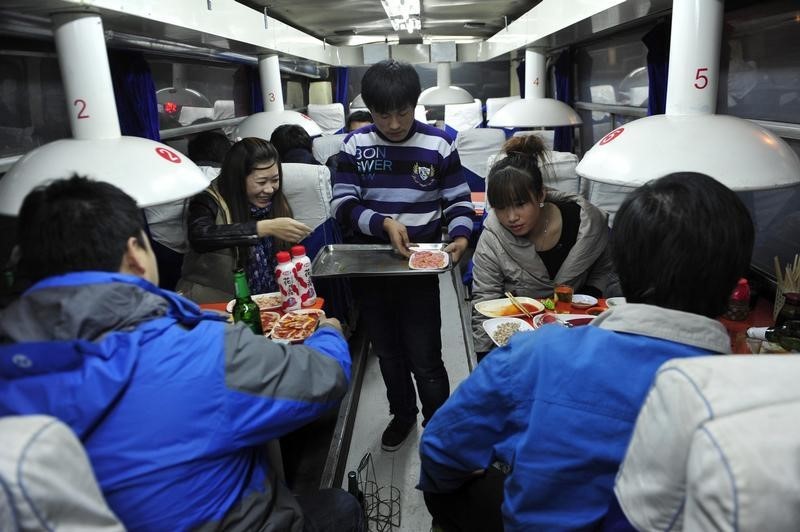Fubotv earnings beat by $0.10, revenue topped estimates
(Bloomberg) -- China’s manufacturing activity gained in February despite holiday and virus disruptions, with sentiment among larger businesses improving while smaller firms continued to slump.
The official manufacturing purchasing managers’ index rose to 50.2, the National Bureau of Statistics said Tuesday, beating the median estimate of 49.8 in a Bloomberg survey of economists. The non-manufacturing gauge, which measures activity in the construction and services sectors, increased to 51.6, above the consensus forecast. The 50-level separates expansion from contraction.
Manufacturing activity at the beginning of each year is usually distorted by the week-long Lunar New Year holidays, which fell mostly in February this year. Many businesses and factories shut down and people traveled back to their hometowns for family gatherings during the period, although virus restrictions in parts of the country prompted some to remain in the cities where they work.
New orders picked up, while factory managers reported stronger expectations for business activity in coming months. Input and output prices also gained, suggesting inflation pressures may rise.
The improvement in the PMI came mainly from larger businesses, with sentiment among smaller firms continuing to slump. That suggests Beijing will likely tailor its financial support toward that sector, said Xing Zhaopeng, senior China strategist at Australia and New Zealand Banking Group.
“The authorities will place more emphasis on small and medium-sized enterprises in our view, so policy support will be targeted and measured through fiscal and industrial policies going forward, instead of monetary easing,” he said.
The government and central bank shifted to easing mode in the second half of last year as economic momentum faltered under a property downturn and sporadic virus outbreaks. The People’s Bank of China has cut interest rates, reduced the amount of cash banks must hold in reserve, and boosted credit expansion in the economy.
The Politburo, the Communist Party’s top decision making body, vowed last week to strengthen macroeconomic policies to stabilize the economy this year, suggesting more support could be unveiled at the National People’s Congress that kicks off this week.
The Caixin Manufacturing PMI, a separate private survey focused more on smaller, export-oriented businesses, also showed mild improvement in February. The index gained to 50.4, beating the median forecast of 49.1 in a Bloomberg survey of economists.
Chinese stocks are set for their third straight day of gains on Tuesday. The benchmark CSI 300 Index rose as much as 0.8% in early trading, with consumer staples and industrial shares leading the gain.
Other key highlights from the PMI data:
- New orders rose to 50.7 in February from 49.3 in the previous month, while new export orders increased to 49 from 48.4
- The sub-indices for manufacturing and non-manufacturing employment improved, but remained below the 50-mark, signalling an on-going contraction in jobs
- The construction sub-index climbed to 57.6
(Updates with additional details, comment from economist)
©2022 Bloomberg L.P.
